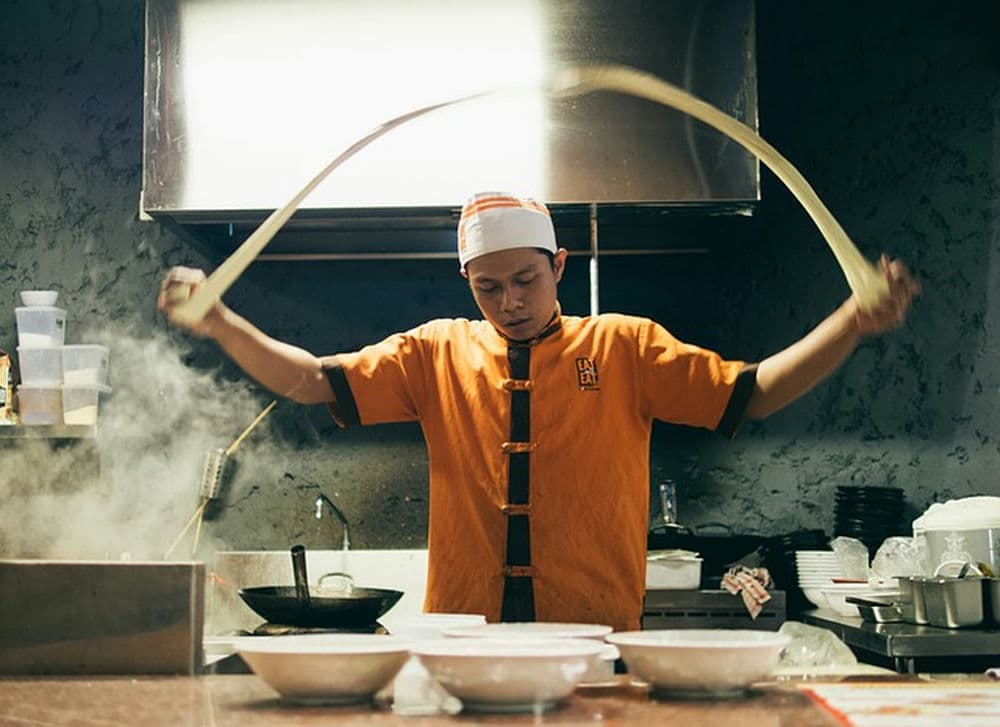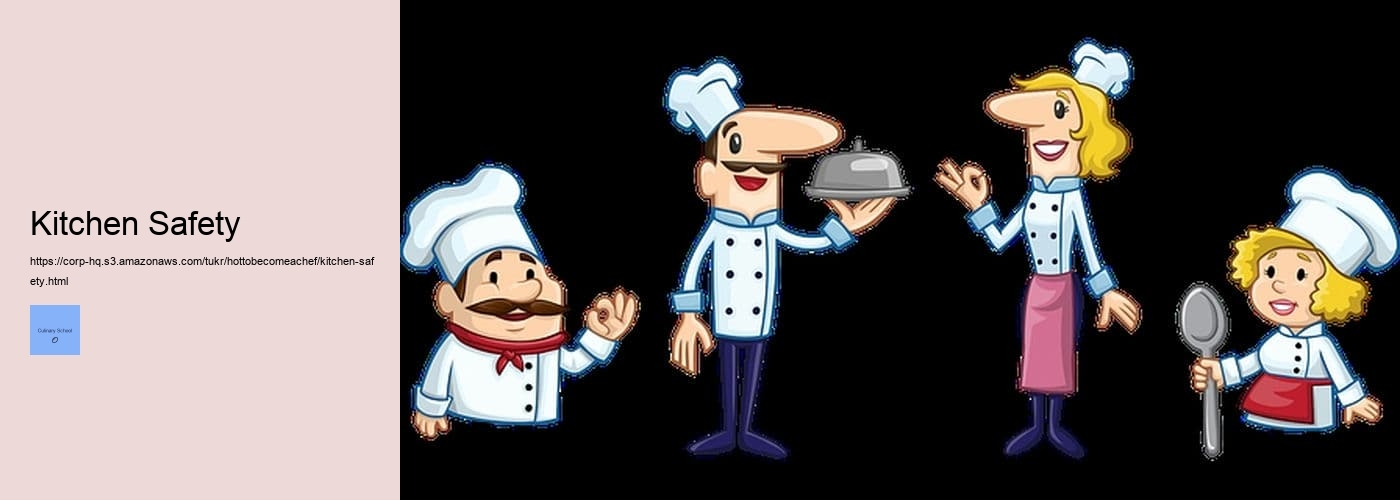

Intro to Kitchen Safety! (is) an important lesson for all seeking to hone their culinary skills. Negat(ing) the potential risk of injury or harm, this topic covers basic guidelines that must be followed while prepar(ing) and cook(ing). Firstly, it is essential to keep your workstation clean at all times; this means remov(ing) any clutter (that may be present), wip(ing) up spills as soon as they occur, and properly sanitiz(ing) surfaces with a disinfectant. Traveling to sample flavors and techniques from different world cuisines can inspire innovation and growth for aspiring chefs. Knife Skills Travel and exploration. Volunteering to assist with community cooking classes or events enables chefs to give back while networking and marketing their abilities. Knife Skills Culinary school. Finding employment as a personal chef provides the opportunity to craft customized menus and creatively prepare meals for individuals. How to become a chef Catering services. The path to becoming an accomplished chef requires continuous learning, unwavering dedication and patience through the challenging yet rewarding process. How to become a chef Knife skills. Furthermore, during food preparation, one should take extra care when using sharp objects such as knives or graters - always wear suitable protective gear like gloves or aprons.
Additionally, kitchen fires are an ever-present danger. To avoid such events from happening in the first place, never leave hot appliances unattended and make sure that flammable items are kept far away from heat sources. Moreover, if a fire does start up unexpectedly, having a fire extinguisher close by is highly recommended.
Finally, it is also essential to pay attention to personal hygiene; wash your hands regularly before handling food and make sure you don't cross contaminate different foods by washing utensils after each use. All in all, following these guidelines will help ensure safety while cooking delicious meals!
Kitchen safety is of utmost importance! Negligence in this area can (lead to) serious injury or even death. It's essential to be aware of the potential hazards present in the kitchen. This includes slipping on wet floors, burns from hot surfaces, and cuts from sharp objects. It also encompasses fire risks due to improper use of appliances or incorrect storage of combustible materials.
Moreover, toxic fumes from gas leaks or incorrectly stored chemicals should never be overlooked. Additionally, electrical shock is another major risk that must not be dismissed. Finally, food poisoning can arise from unsanitary conditions or poor food handling practices.
Consequently, it behooves us to keep our kitchens as safe as possible by taking certain measures like keeping floors dry and clean; not leaving hot surfaces accessible; storing sharp objects safely; following manufacturer instructions when using large appliances; ensuring proper ventilation when dealing with toxic fumes; making sure there are no frayed wires near water sources; and always washing hands and utensils before handling foodstuff.
All in all, these precautions will go a long way towards preventing any accidents or health issues that may occur in the kitchen.(In conclusion,) If we take necessary steps to ensure a safe environment for cooking - like those mentioned above - then we are one step closer to avoiding these kitchen disasters!
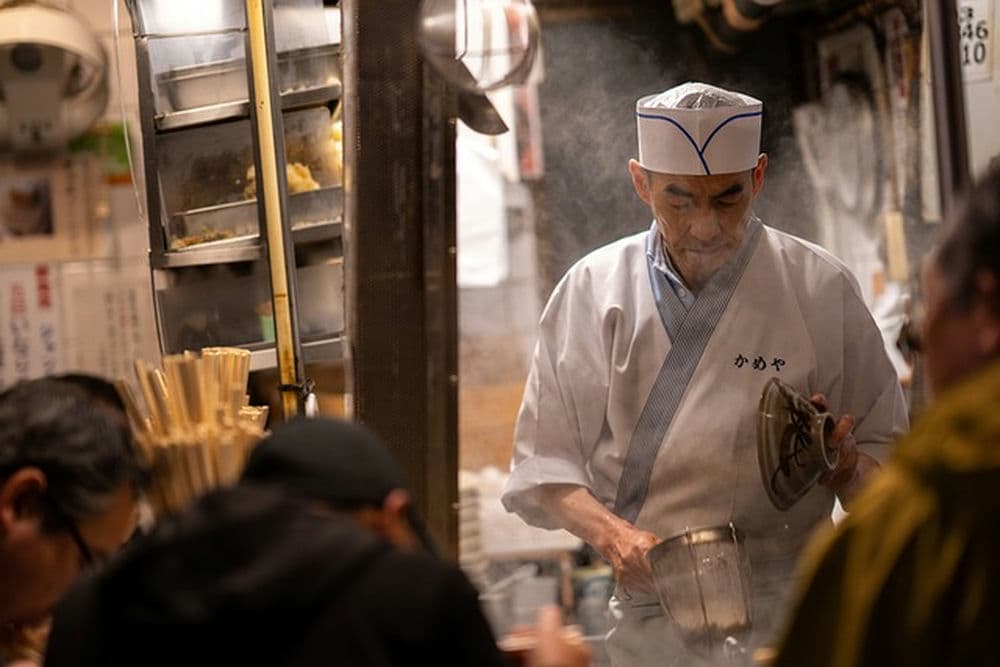
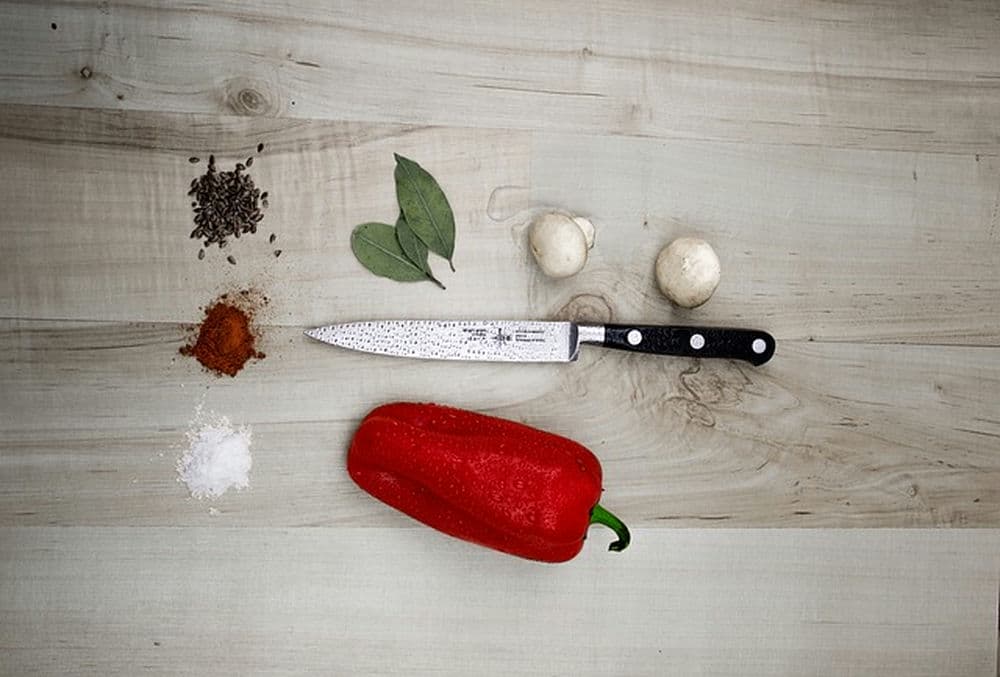
Becoming a master chef in just 10 steps is an ambitious goal.. But with patience, dedication, and hard work it can be achieved!
Posted by on 2023-09-03

A professional chef can have a (financially rewarding career)!. Besides the tasty creations, chefs can enjoy good wages and other benefits.
Posted by on 2023-09-03
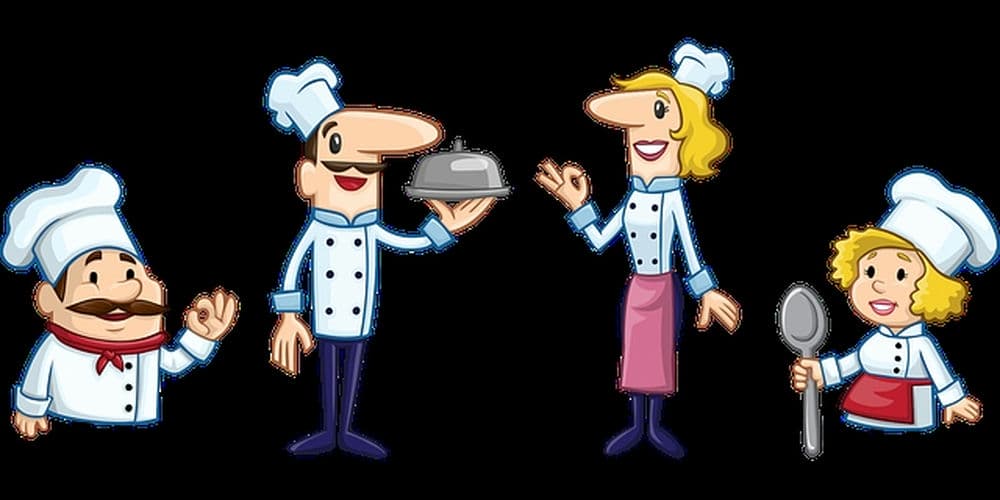
Transforming one's culinary skills into a rewarding career can be an exciting and fulfilling journey.. With the right knowledge, creativity, (and) dedication, anyone can leverage their successful career for future growth!
Posted by on 2023-09-03

Cooking is a skill that requires practice, patience and dedication.. With the right mindset (and a few helpful tips) mastering the art of cooking can be an enjoyable and rewarding experience! (It's important to remember to seek help when needed).
Posted by on 2023-09-03
Proper safety equipments for kitchens are highly important to avoid any harm. It is equally crucial to (not) neglect this factor when cooking, as it may lead to serious consequences! For instance, one should always ensure that they have the right gloves and aprons while working in the kitchen. Moreover, a fire extinguisher should be kept at hand incase of an emergency. In addition, sharp knives should be handled with extreme caution and always stored away from children's reach. Furthermore, anti-slip mats must be used on floors and countertops to prevent accidents. Finally, one should never leave food or liquids unattended; (even) if only for a few moments!
To sum up, proper safety equipments are imperative in order to protect oneself while cooking. Neglecting these measures could cause serious problems down the line - so it's best to take precautions now rather than later! After all, prevention is better than cure!
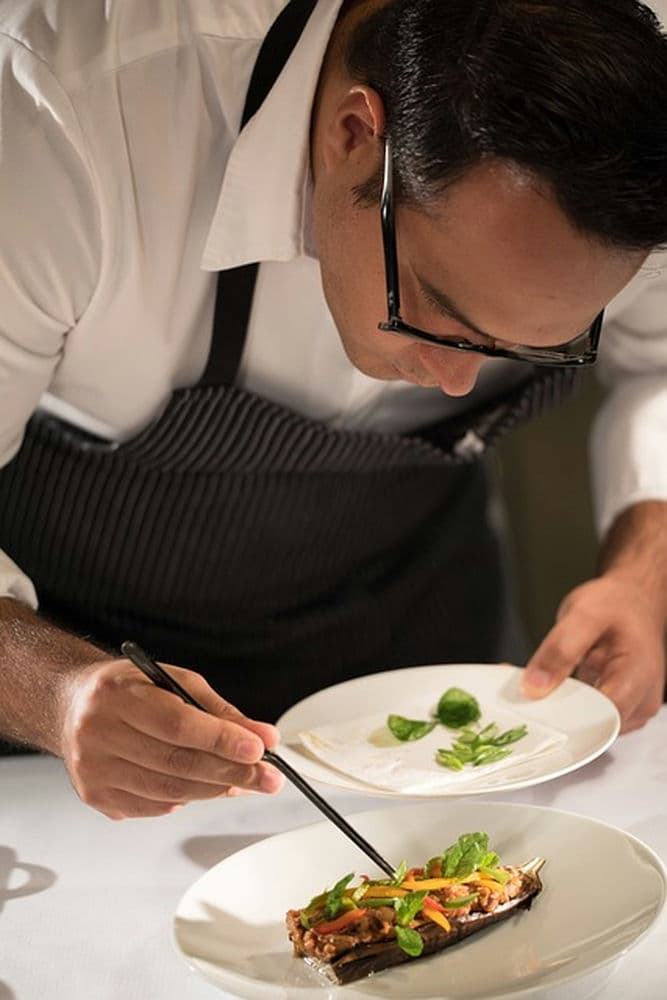
Storing food and dishes safely is an essential part of kitchen safety. Proper storage can help prevent spoilage, contamination, and injury. First of all, all food should be kept in air-tight containers or sealed bags to avoid bacteria from entering the food. Store raw meats seperatey from other foods to avoid cross-contamination. Additionally, always check expiration dates before consuming any food item and discard expired items immediatly! Furthermore, store hot foods at temperatures over 140 degrees Fahrenheit or 60 degrees Celsius, while cold foods should be kept below 40 degrees Fahrenheit or 4 degrees Celsius. (Also known as the danger zone.)
Moreover, dishes must also be stored carefully to avoide breakage and accidents. Place sharp knives in a designated drawer away from small children's reach; this will not only keep them safe but also reduce the risk of accidentally cutting yourself! In addition to that, it is important to have separate cupboards for cleaning supplies and chemicals such as bleach - these should never be stored near food items as they can cause serious harm if ingested! Finally, keep all surfaces clean and sanitized regularly to prevent germ growth.
Ultimately, storing food and dishes safely is a vital part of kitchen safety and requires careful consideration for maximum protection against risks like contamination and injury. With proper storage techniques you can ensure your kitchen remains hygienic whilst avoiding unnecessary hazards!
Good hygiene practices in the kitchen are vital for ensuring safety of food and health of people. It's important to maintain proper sanitation while handling, cooking and storing food. Neglecting to follow these procedures can result in serious consequences (including illnesses). First off, one should always wash their hands before preparing or eating any food. This will avoid any bacteria from spreading that could lead to sickness. Also, it's important to keep all work surfaces clean and free of dirt or crumbs, as this can attract unwanted pests such as rats or cockroaches!
Furthermore, perishable foods like meat should be stored separately from other items in the refrigerator. Keeping them in sealed containers prevents cross-contamination with other ingredients. Additionally, it’s wise to regularly check expiration dates on all products you use; discarding anything that is past its sell-by date will prevent possible contamination with harmful bacteria. Also, don’t forget to take out the garbage regularly!
In conclusion, being mindful of good hygiene practices in your kitchen may seem tedious at times but is essential for maintaining a safe environment when it comes to food preparation! To sum up; wash your hands often, keep surfaces clean and store foods properly – these simple steps will help ensure a healthy and hygienic kitchen!
Cooking in a kitchen can be fun and exciting, but it is also importatnt to be safe! Wearing the appropriate clothing can help ensure the safety of yourself and others around you. It's important to avoid wearing baggy clothes that may get caught on pot handles or utensils (loosely fitted garments), as well as any sort of jewelry that could snag on things. Also, wearing open-toed shoes should be absolutlely avoided! The best option is to wear closed-toe shoes with non-slip soles when cooking.
Additionally, long hair should always be tied back so it doesn't accidentally catch flame from stovetops or ovens. Aprons are another great way to keep clothing clean, and many aprons even have pockets for holding utensils or recipes while cooking. Moreover, it's wise to keep an eye out for any splattering grease or liquids - if this occurs, quickly change out of those clothes and into a fresh set.
Overall, following these tips for selecting the proper clothing when cooking will help create a safe environment in your kitchen! And remember: safety always comes first!
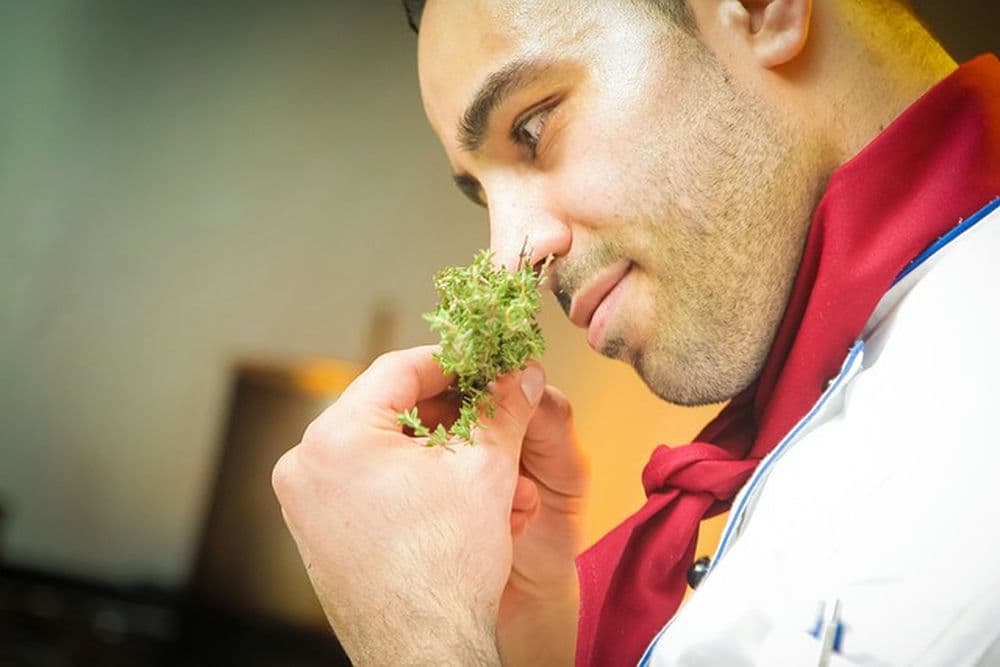
Trainin' staff on safety procedures and protocols for kitchen safety is a must! Not only to ensure the well-being of workers, but also to avoid any potential danger that could arise. (For instance,) slips, trips or falls; burns from hot liquids; cuts from sharp objects; electric shock etc.
Moreover, it's important to provide trainin' on how to handle hazardous materials and equipment in the right way. That includes knowin' what type of gloves and aprons are necessary when handlin' potentially dangerous items as well as learnin' about proper storage techniques.
Furthermore, staff should be taught how to properly clean and disinfect all kitchen surfaces including countertops, appliances, utensils and floors - this will reduce the risk of food contamination and cross-contamination. Additionally, they should receive instruction on how to identify food allergens and keep them separate from other ingredients.
In conclusion, by trainin' staff on kitchen safety procedures and protocols you'll help create a safe work environment which can prevent unnecessary accidents or illnesses that might occur due to carelessness or lack of knowledge. So don't forget: emphasizin' safety in your workplace is not just an option - it's a necessity!
Kitchen safety is an important issue that should not be overlooked (or negelcted). It's essential to take necessary precautions when cooking, as accidents can happen in a matter of seconds! Fire prevention is critical - ensure stoves are turned off after use and all flamable items such as tea towels are kept away from heat sources. A smoke alarm must also be installed and checked regularly to make sure it is in good working condition.
Furthermore, knife safety is essential to avoid serious injuries. Blades should always be handled with caution and stored correctly to prevent anyone from getting hurt (or injured). Sharpening knives on a regular basis will also help reduce the risk of injury. Additionally, never leave sharp objects lying around on bench tops or within reach of young children.
Overall, kitchen safety awareness should always be on top of mind for everyone using the kitchen - whether you're an expert chef or an amateur cook! With proper knowledge about the risks associated with kitchen activities, we can all get through our culinary adventures unscathed!
In conclusion, following basic kitchen safety rules is vital for any kind of cooking activity- don't forget them! By taking precautionary measures and being aware of potential hazards, we can minimise dangers in the kitchen and enjoy our meals without putting ourselves at risk. So let's all commit to keeping kitchens safe and secure so that we can continue creating delicious masterpieces without fear!
